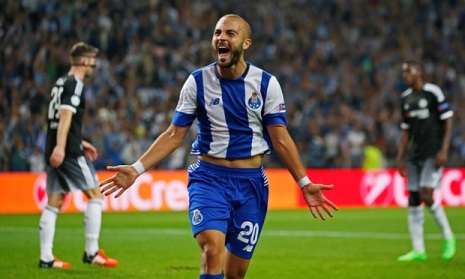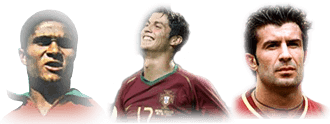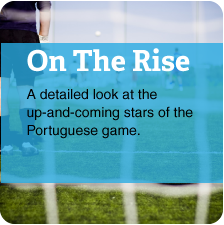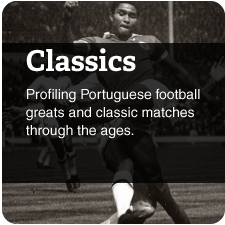 Any Portuguese football fan under 35 years of age, until recently, had nothing but grainy TV footage and historical press articles as evidence of a time when Porto did not rule the roost in Portugal.
Any Portuguese football fan under 35 years of age, until recently, had nothing but grainy TV footage and historical press articles as evidence of a time when Porto did not rule the roost in Portugal.
The Dragons dominated Portuguese football almost absolutely for three decades. In addition to winning the national title 20 times in that period, the northerners also became champions of Europe twice, not to mention winning the UEFA Cup and the Europa League, while their main domestic rivals, Benfica and Sporting, fed on scraps of domestic silverware here and there and made little or no impression abroad.
That all changed upon the re-emergence of Benfica as the dominant force in the Liga NOS, the Lisbon club crowning a sustained era of stability under president Luís Filipe Vieira’s steady hand by winning three championship titles on the spin.
In contrast, Porto president Pinto da Costa’s plan two years ago to completely overhaul the squad and start anew under the leadership of a man with fresh ideas, Julen Lopetegui, proved disastrous. Now three seasons without a trophy, and with Lisbon rivals Sporting also becoming more competitive, Porto plummeted to a new low last season, finishing 15 points behind champions Benfica and 13 behind Sporting, as well as bombing badly in Europe.
The club decided to start anew again, only this time, Porto are going back to the strategy that accounted for much of their initial triumphs, by focusing on Portuguese talent. The spectacular feats of South American talents such as Mário Jardel, Radamel Falcao and Hulk along with the massive transfer bonanzas in the post-Mourinho era, combine to cloud people’s memory about just how much of Porto’s success was built on Portuguese foundations.
Taking the Portuguese route
When the club first announced itself on the international scene, winning the European Cup in 1987, eight of the starting XI in the final against Bayern Munich were Portuguese, as well as their coach, Artur Jorge. In the pre Bosman-rule era, when player movement between countries was much less prevalent than it is today, this perhaps is not surprising. What is surprising is that when Porto again lifted the greatest prize in club football, in 2004, the number of Portuguese players in Mourinho’s starting XI had actually increased to nine.
Throughout Porto’s epoch of hegemony the team was always dominated by big characters, inculcated with what the team’s fans call the Porto mystique, an intangible and undefinable cultural trait that lends the club their winning mentality, personified in players such as João Pinto, Jorge Costa and Vítor Baía. Such footballers, usually locally born, were charismatic leaders, were willing to bleed for their club on the pitch, and made sure their team-mates did likewise.
Coincidence or not, Porto’s fortunes started to nosedive with the disappearance of these types of strong personalities. It has not been unusual in recent seasons for Porto to line up without a single Portuguese player in their ranks, let alone a local-born one.
Upon the abandonment of Lopetegui’s Spanishification of the team, the path has been cleared for Porto to step back towards their historical legacy. Midfielder André André, the son of one of Porto’s 1987 European Cup winning heroes, is endowed head to foot with the Porto mystique and will surely play a prominent role this season.
The precociously talented Rúben Neves is another player who is 100% portista, and along with Portugal international Danilo and exciting striker André Silva, a prolific scorer for the B team who has been promoted to the senior set-up, Porto now have a core of high-quality Portuguese players on which to rebuild. With rumours continuing to surround the impending capture of Braga winger Rafa Silva, and with backup goalkeeper José Sá and ex Liverpool trainee João Teixeira champing at the bit for a first-team berth, Porto could soon be lining up with over half the team comprising Portuguese players.
No doubt Pinto da Costa had this in mind when hiring former Porto goalkeeper Nuno Espírito Santo as the club’s new coach. Whether or not it will bring back the glory days only time will tell, but with both the coach and the club as a whole looking to redeem their reputations, Porto are at least a club with a clearly defined direction again.
by Tom Kundert




